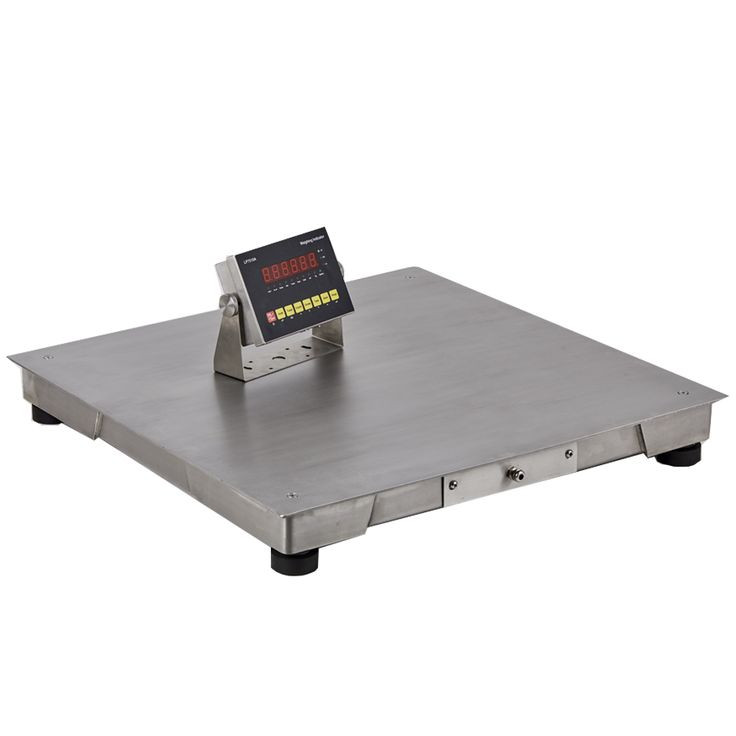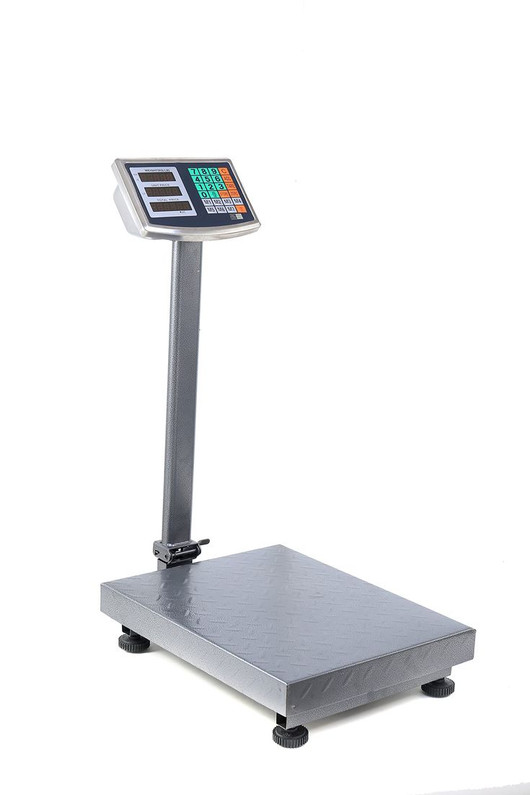NTEP Certified Scales: The Gold Standard in Weighing for Trade and Industry
When it comes to trade and industry, precision is paramount, and this extends to the measurement of goods and products. One of the key elements in ensuring that businesses adhere to industry regulations, maintain fairness in transactions and ensure accuracy in measurements is the use of NTEP certified scales.
These scales, tested and approved by the National Type Evaluation Program (NTEP), are recognized as the gold standard for commercial weighing. But what exactly makes these scales the preferred choice for industries across the globe, and how do they uphold such rigorous standards?
In this blog post, we will explore everything you need to know about these scales, from their role in ensuring fair trade to their impact on industries. We will dive into the certification process, the different types of NTEP certified scales, their applications, and much more.
Key Takeaways
- NTEP certified scales are essential for ensuring accuracy and fairness in commercial transactions.
- These scales undergo rigorous testing and certification by the National Type Evaluation Program (NTEP) to meet industry standards.
- NTEP-accredited scales are used in a variety of industries, including retail, manufacturing, agriculture, and shipping.
- Choosing the right scale is critical to business operations, as it impacts compliance, safety, and overall productivity.
- Businesses need to ensure that they use the correct scale type for their specific needs, whether it's a countertop scale, truck scale, or platform scale.
Introduction to NTEP Certified Scales
These scales are a critical part of commercial transactions and industrial operations. NTEP (National Type Evaluation Program) certification ensures that scales are accurate and conform to national standards. This certification assures businesses and consumers alike that measurements are reliable and fair, which is especially important in trade and industry, where even a small error in measurement can result in significant financial loss or legal consequences.
The NTEP certification process involves rigorous testing to verify that a scale meets the required standards for accuracy, performance, and durability. NTEP-standard commercial scales are widely used in a variety of industries, ensuring consistency and fairness in weighing systems. In the following sections, we will explore the various aspects of these scales and why they are the gold standard in weighing for trade and industry.
The Role of NTEP in Weighing Standards
The National Type Evaluation Program (NTEP) is a program managed by the National Conference on Weights and Measures (NCWM). NTEP’s role is to evaluate and certify the accuracy and performance of weighing and measuring devices used in trade, ensuring they comply with industry regulations.
NTEP is an essential component of the U.S. Department of Commerce’s Weights and Measures Division, which works with state and local jurisdictions to oversee the enforcement of measurement standards. The certification process verifies that weighing equipment meets the minimum standards of performance and accuracy required for commercial use. These standards are set by the NCWM and are based on national regulations, as well as industry best practices.
Importance of NTEP Certification for Businesses
For businesses involved in transactions that rely on precise measurements, such as buying and selling bulk goods, having NTEP-compliant scales is not just important—it’s often required. Using certified equipment helps ensure that businesses comply with legal standards and regulations. This protects both buyers and sellers by ensuring fairness in weight-based transactions.
In addition to ensuring compliance, NTEP certification also provides businesses with confidence in the accuracy and reliability of their scales, which directly impacts their bottom line. Whether it’s for measuring produce in a grocery store, weighing freight for shipping, or monitoring the production process in a factory, an NTEP certified commercial scale offers the assurance that the measurements are correct and legally compliant.
How Are NTEP Certified Scales Tested?
These scales are tested for accuracy, performance, and durability. The certification process involves several key steps:
- Initial Testing: Scales are sent to an accredited laboratory where they are subjected to a series of tests. These tests simulate real-world conditions to ensure the scales perform accurately under various scenarios.
- Performance Evaluation: The scale is evaluated for its ability to consistently provide accurate readings within the acceptable tolerance range. This includes testing the scale at different loads, temperatures, and other variables.
- Documentation Review: The manufacturer’s documentation is reviewed to ensure that the scale complies with NTEP’s requirements. This includes examining design specifications, calibration procedures, and any other relevant data.
- Ongoing Compliance: Once certified, manufacturers must ensure that their scales continue to meet NTEP standards. This often involves periodic re-certification and the submission of updated data to NTEP.
Types of NTEP Certified Scales
There are several types of these scales, each designed to meet specific needs in various industries. These include:
Countertop Scales
Countertop scales are commonly used in retail environments for weighing products like produce, meats, and other items. These compact scales are often found in grocery stores, delis, and markets. NTEP-standard countertop scales ensure accurate measurements for both the seller and the consumer.
Truck Scales
Truck scales, also known as weighbridges, are large, heavy-duty scales used to weigh trucks and trailers. These scales are essential for industries like logistics, shipping, and agriculture. They are used to measure the weight of large loads, ensuring compliance with weight regulations for road safety and trade.
Platform Scales
Platform scales are versatile, flat surfaces used for weighing a variety of items, from pallets to large machinery. These scales are widely used in warehouses, factories, and shipping facilities. They are ideal for measuring large or heavy items that cannot be weighed on smaller scales.
Floor Scales
Floor scales are used in industrial settings to weigh goods and materials that are too large or heavy for other types of scales. These scales are designed to be placed on the floor, and they are often used in manufacturing and logistics environments for weighing bulk goods or pallets.
Specialty Scales
In addition to the general types of NTEP-compliant scales, there are also speciality scales designed for specific industries. Examples include livestock scales, shipping scales, and laboratory scales. Each of these scales is designed to meet the unique needs of the industry it serves, while still adhering to NTEP standards.
Applications of NTEP-standard Scales
These scales are used in a wide range of industries and applications. Here are some of the most common:
Retail and Grocery
In retail and grocery stores, these scales are used to ensure that customers are charged fairly for the weight of their purchases. Whether it’s for produce, deli meats, or bulk goods, these scales help retailers comply with trade regulations and ensure that they provide accurate pricing.
Manufacturing and Production
In manufacturing and production environments, scales are used to weigh raw materials, monitor production processes, and ensure quality control. NTEP-accredited scales in these settings help ensure that products meet specifications and that the production process is efficient and accurate.
Agriculture and Livestock
In the agriculture and livestock industries, scales are used to weigh animals, produce, and other agricultural products. NTEP standard scales in these industries help ensure fair trade and compliance with weight-based regulations.
Shipping and Freight
Shipping and freight companies rely on such scales to weigh packages, pallets, and containers. Accurate weight measurements are critical for determining shipping costs, ensuring that packages meet weight regulations, and avoiding penalties.
Benefits of Using NTEP Certified Scales
Accuracy and Reliability
These scales are tested under stringent conditions to ensure that they provide consistent and reliable measurements. This is essential for businesses that rely on precise weight measurements for trade and regulatory compliance.
Compliance with Regulations
Using NTEP-accredited scales helps businesses comply with industry regulations. Compliance with measurement standards is critical for avoiding legal issues and ensuring that transactions are conducted fairly and equitably.
Increased Efficiency
These scales streamline the weighing process, improving efficiency in various industries. By ensuring accurate readings and reducing the likelihood of errors, businesses can save time and resources while ensuring fair trade practices.
Cost Savings in the Long Run
Although these scales may come with a higher initial investment, they offer significant cost savings in the long run. Accurate measurements reduce the risk of penalties, fines, and disputes, which can be costly for businesses. Moreover, these scales are designed to be durable and reliable, minimizing maintenance and replacement costs.
Challenges in Choosing the Right NTEP Certified Scale
Choosing the right scale for your business can be challenging. Here are a few factors to consider:
Understanding Specific Needs
Before purchasing an NTEP certified scale, it’s essential to assess your business’s specific weighing needs. Whether you require a small countertop scale or a large truck scale, understanding your requirements will help you select the most appropriate scale.
Calibration and Maintenance
Regular calibration and maintenance are critical for ensuring that your scale continues to perform accurately. This can be a time-consuming process, but it is necessary to maintain compliance with industry standards.
How to Ensure Your Scale Is NTEP Certified
To verify that your scale is NTEP-standard, look for the NTEP certification label or check the manufacturer’s documentation. The label will indicate that the scale has been tested and approved by NTEP for accuracy and performance. You can also consult the NTEP certification database for a list of certified devices.
Conclusion
NTEP-standard scales are a vital part of ensuring fairness, compliance, and efficiency in trade and industry. These scales provide businesses with the confidence that their measurements are accurate and legally compliant, helping to maintain fairness in transactions and avoid costly errors. Whether you’re in retail, manufacturing, agriculture, or shipping, investing in NTEP-compliant scales is an essential step toward running a successful and compliant operation.
FAQs
1. What is the difference between NTEP certified scales and non-certified scales?
These scales undergo rigorous testing to ensure accuracy and compliance with national standards, while non-certified scales may not meet these standards, leading to potential errors in measurement and non-compliance with trade regulations.
2. How often should NTEP-standard scales be calibrated?
These scales should be calibrated regularly, typically once a year or whenever they are moved or exposed to extreme conditions. Regular calibration ensures continued accuracy and compliance.
3. Can NTEP-accredited scales be used for both small and large items?
Yes, these scales come in various types, from small countertop scales to large truck scales, making them suitable for weighing both small and large items.
4. Are NTEP-standard scales suitable for international trade?
Yes, these scales meet national standards, and many countries recognize NTEP certification, making them suitable for international trade where accurate weighing is required.
5. Where can I buy NTEP-accredited scales?
These scales can be purchased from authorized dealers, manufacturers, and online retailers. It’s important to verify the certification status of the scale before making a purchase.
Recent Posts
-
Everything You Must Know to Ensure Industrial Scale Compliance and Avoid Costly Fines
Did you know one bad scale reading can get you fined? It's true. Many businesses mess up their scale …3rd Feb 2026 -
Maintenance Playbook for Industrial Scales: Preventive, Predictive, and Corrective Maintenance
Are your industrial scales costing you money? One hour of downtime can stop your entire production l …3rd Feb 2026 -
Stop Losing Thousands: The Certified 7-Step Industrial Scale Calibration Checklist for Flawless Accuracy
You check your inventory reports, and the numbers don't add up. Again. Those discrepancies often tra …2nd Jan 2026


